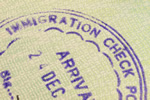Expatriate law can disallow taking children back home after divorce

Expatriate law can disallow taking children back home after divorce
This expat exodus from the UK isn’t just fuelled by retirees looking for a drier, warmer climate and a low cost of living as it also includes British professionals lured by the tax-free lifestyles, fast and furious career progressions and massive salaries unavailable in the UK. Expat hubs such as the Middle East, Hong Kong, Singapore and even China are the living, working proof that there’s now an impressive choice of world destinations where financial and career dreams can come true.
For those lucky and talented enough to be offered a position in one of these upscale locations, they and their families normally receive full support from their company as regards getting visas, arranging housing and contributing to international schooling. It’s undoubtedly exciting to move to Asia or the Gulf States, but few expatriate professionals give a thought to the effect it might have on their personal relationships. Sadly, a break-up in such a location can be even more devastating than one in the home country, especially when children are involved.
For children, where they are living at any one time is their legal, habitual residence, making removing them an act of child abduction. This fact can come as a shock to expat parents, who find it difficult to believe they could be accused of doing this as part of a separation or divorce. Mothers who wish to return to the UK and take their children with them cannot do so legally if the father forbids it. Some take a gamble rather than getting permission from a local court, and some get away with it, but it’s not the recommended course of action.
A few favourite expat professional destinations have recognised this as a major problem, with Dubai, for example, now allowing a single mother a year’s extended stay without a sponsor after she can no longer rely on her spousal visa due to divorce. The Singapore legal system also seems to be moving in a similar direction. It would help if companies which regularly send employees and their families on reassignment overseas would take it on themselves to educate them in the potential problems caused by relationship breakdowns in a legally unfamiliar location.
Related Stories:
- Skilled expat professionals urged to consider Abu Dhabi as home - July 9, 2020
- Expatriates in Hong Kong fearing Beijing�s new national security law - June 28, 2020
- Should potential Brit expatriates still head for Spain? - June 17, 2020
- Will expats in the Czech Republic go for 3D printed homes? - June 16, 2020
- Buying an affordable traditional home in Japan's countryside - June 12, 2020
- Brits looking to expatriate can now find property bargains - June 4, 2020
- Finding the right expat home in Prague is now far easier - May 26, 2020
- New Chinese law aims to destroy Hong Kong and its passionate democracy - May 25, 2020
- New expat arrivals in Oz are seeking affordable new homes - May 22, 2020
- Expats in Czech Republic now happy to continue working at home - May 21, 2020
Latest News:
- Tips on a trouble-free relocation as an expat overseas - July 20, 2020
- Expats find peace in the covid-19 refuge of Dahab town - July 20, 2020
- Is Kuwaitization the unintended result of the oil price crash? - July 20, 2020
- Expats unhappy abut changes to Korean points-based visa system - July 17, 2020
- Chiang Mai and Bangkok no longer bargain locations for expats - July 17, 2020
- Expats in Malaysia still banned from overseas travel - July 17, 2020
- Vietnam welcomes expats to its safe, affordable lifestyle - July 16, 2020
- Asian tiger economies reach out to expats in Hong Kong - July 16, 2020
- HSBC Asia to cut back on internal expat relocations - July 16, 2020
- Tips on integrating for newly-arrived expats - July 15, 2020


